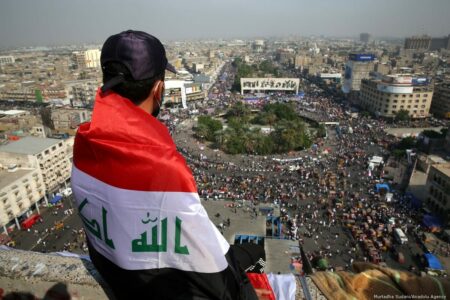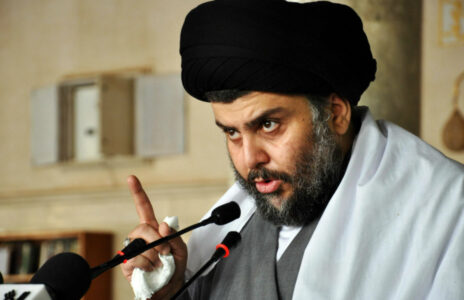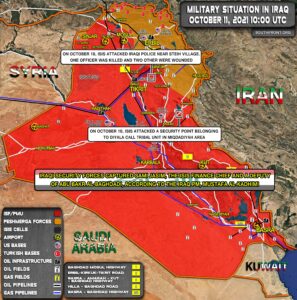
Click to see full-size image
Early voting in parliamentary elections took place in Iraq. It was marked by a record-breaking low turnout, according to the election commission. In particular, this is largely due to the Iraqi youth, who massively boycotted the vote. In this regard, the Government is already taking measures, preparing for a possible new wave of protests soon after the announcement of the results.
The Chairman of the Board of Commissioners of the Independent High Electoral Commission (IHEC), Jalil Adnan, told AFP news agency hours before the polls closed on October 10th that the turnout was estimated at just over 30%.
Meanwhile, local officials have already stated that they are ready to impose a local curfew, as there remains a high risk that the preliminary results may provoke protests by parties that expected better results.
Despite the government’s concerns about possible unrest on the day of the vote, no riots were reported across the country, including such “hot spots” as Nasiriyah, Kirkuk and Sadr suburbs of Baghdad.
During the elections in 2021, a set of new rules were introduced in Iraq, at the initiative of Prime Minister Mustafa al-Kadhimi. The innovations were the result of anti-government protests, which since October 2019 have been calling for reforms and even the overthrow of the entire political class, which is considered corrupt in its essence.
In order to satisfy the demand of the protesters, the electoral system was changed. The number of electoral districts has increased from 18 to 83, where citizens vote for individuals, not for parties. Although this innovation is quite symbolic, since candidates who are not independent still enjoy the support of their parties.
Another innovation was that 25% of all seats were reserved for female candidates.
Despite the al-Kadhimi’s efforts, the changes failed to convince members of the anti-government movement to take part in the vote. Activists urged not to go to the polls, arguing that voting itself would give legitimacy to the system, which they do not accept.
It was also reported that the elections faced some minor technical problems. According to the IHEC, the malfunctions were “limited” and caused by “human errors.” For example, malfunctions of voting machines were reported in the Kirkuk and Di-Kar governorates.
The minimum turnout will primarily have a negative effect on the pro-Iranian Shiite parties in the parliament, including the Fatah Alliance and al-Hashd al-Shaabi. They faced another challenge. Members of al-Hashd al-Shaabi were forced to vote according to their places of residence.
In this regard, the growth of numbers of Sunni, independent and purely confessional-ethnic candidates should be expected in the parliament.

Click to see full-size image
High results in the elections were predicted to Muqtada al-Sadr, a Shiite cleric who gained wide popularity among millions of followers across the country, especially in the poor quarters of Baghdad, Sadr City.
However, it seems that he also faced a turnout crisis and was forces to call on his supporters to take part in the vote on his accounts in social networks.
Of particular interest are the elections in the Kirkuk Governorate, which has 13 seats in parliament, 4 of which are for representatives of the city of Kirkuk. One seat in the governorate is reserved for a Christian. Another record of this election was that 38 candidates from the Christian community were competing for this seat, which is more than a third of the list of candidates for the city of Kirkuk.
Given the local demographics, it is expected that the remaining seats will be divided between Turkmen, Kurds and Arabs. 5 out of 12 seats for Kurds living in remote villages with a predominantly Kurdish population, 3 seats are allocated to Arab candidates in Hawija district, which was one of the last areas liberated by Iraqi government forces from the Islamic State.

Click to see full-size image
Taking into account the variety of factors, according to the results of the elections, any significant changes in the power-sharing in the Iraqi Parliament should not be expected. However, most likely the results will prevent traditional political forces to achieve a significant advantage. As a result, there is a high probability of a compromise candidate to come to the post of the future head of government.




hi
Unfortunate the voter turnout was abysmal. Regardless, foreign occupiers must be purged from the country. No other option exists.
The country of Iraq Is 80% shia.